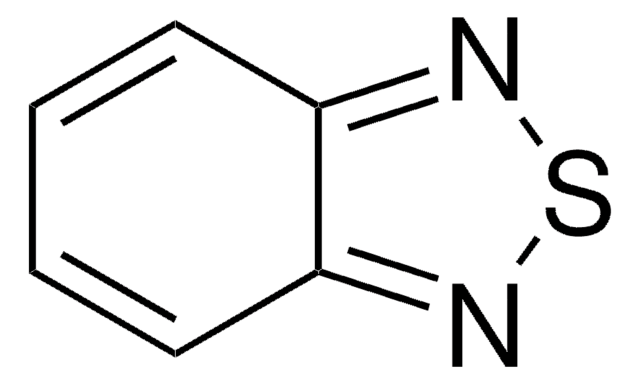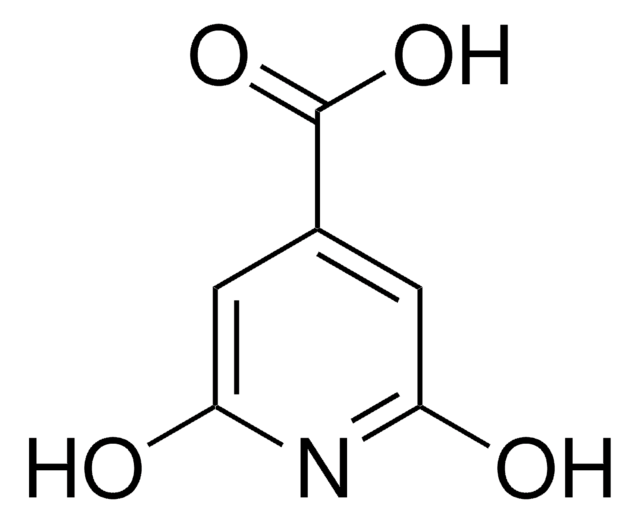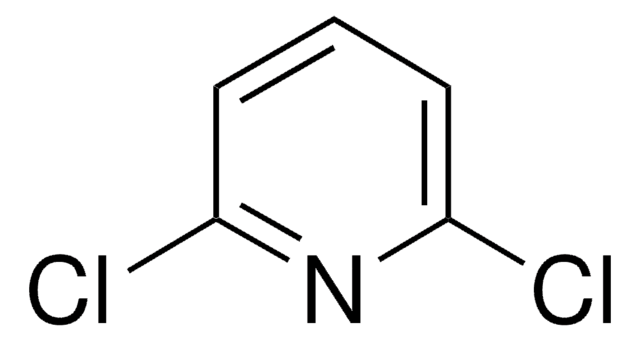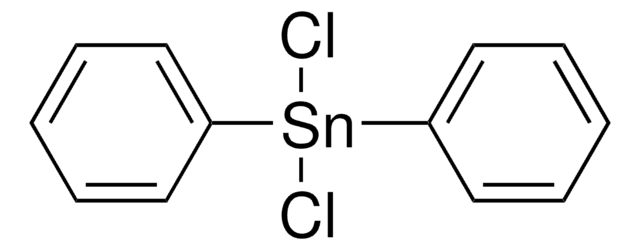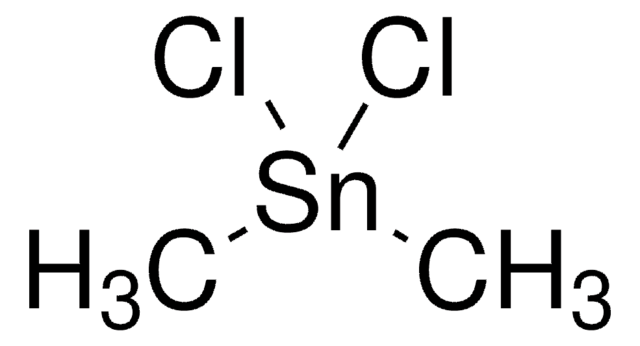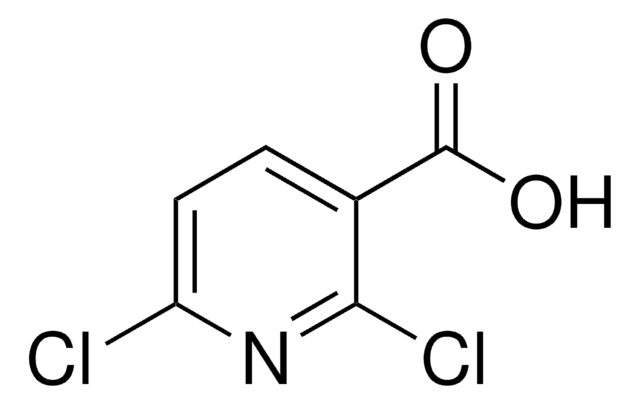456543
2,6-Dichloropyridine-4-carboxylic acid
98%
Synonym(s):
2,6-Dichloroisonicotinic acid
Sign Into View Organizational & Contract Pricing
All Photos(1)
About This Item
Empirical Formula (Hill Notation):
C6H3Cl2NO2
CAS Number:
Molecular Weight:
192.00
MDL number:
UNSPSC Code:
12352100
PubChem Substance ID:
NACRES:
NA.22
Recommended Products
Quality Level
Assay
98%
form
solid
mp
209-212 °C (lit.)
functional group
carboxylic acid
chloro
SMILES string
OC(=O)c1cc(Cl)nc(Cl)c1
InChI
1S/C6H3Cl2NO2/c7-4-1-3(6(10)11)2-5(8)9-4/h1-2H,(H,10,11)
InChI key
SQSYNRCXIZHKAI-UHFFFAOYSA-N
Related Categories
Signal Word
Warning
Hazard Statements
Precautionary Statements
Hazard Classifications
Eye Irrit. 2 - Skin Irrit. 2 - STOT SE 3
Target Organs
Respiratory system
Storage Class Code
11 - Combustible Solids
WGK
WGK 3
Flash Point(F)
Not applicable
Flash Point(C)
Not applicable
Personal Protective Equipment
dust mask type N95 (US), Eyeshields, Gloves
Choose from one of the most recent versions:
Already Own This Product?
Find documentation for the products that you have recently purchased in the Document Library.
Michael Dalgaard Mikkelsen et al.
Plant physiology, 131(1), 298-308 (2003-01-17)
Glucosinolates are natural plant products that function in the defense toward herbivores and pathogens. Plant defense is regulated by multiple signal transduction pathways in which salicylic acid (SA), jasmonic acid, and ethylene function as signaling molecules. Glucosinolate content was analyzed
The preparation of pyridine-4-carboxylic acid and of piperidine-4-carboxylic acid by catalytic reduction of 2, 6-dichloropyridine-4-carboxylic acid.
Wibaut JP.
Rec. Trav. Chim., 63(7), 141-146 (1944)
J M Manners et al.
Plant molecular biology, 38(6), 1071-1080 (1998-12-30)
The plant defensin PDF1.2 has previously been shown to accumulate systemically via a salicylic acid-independent pathway in leaves of Arabidopsis upon challenge by fungal pathogens. To further investigate the signalling and transcriptional processes underlying plant defensin induction, a DNA fragment
A Guo et al.
The Plant journal : for cell and molecular biology, 15(5), 647-656 (1998-10-21)
A clone encoding a putative soluble epoxide hydrolase (EH-1), an enzyme which converts epoxides to diols, was isolated by differential screening of a cDNA library prepared from tobacco mosaic virus (TMV)-infected tobacco leaves. To confirm that EH-1 encodes an epoxide
European Journal of Organic Chemistry, 22, 4445-4449 (2003)
Our team of scientists has experience in all areas of research including Life Science, Material Science, Chemical Synthesis, Chromatography, Analytical and many others.
Contact Technical Service